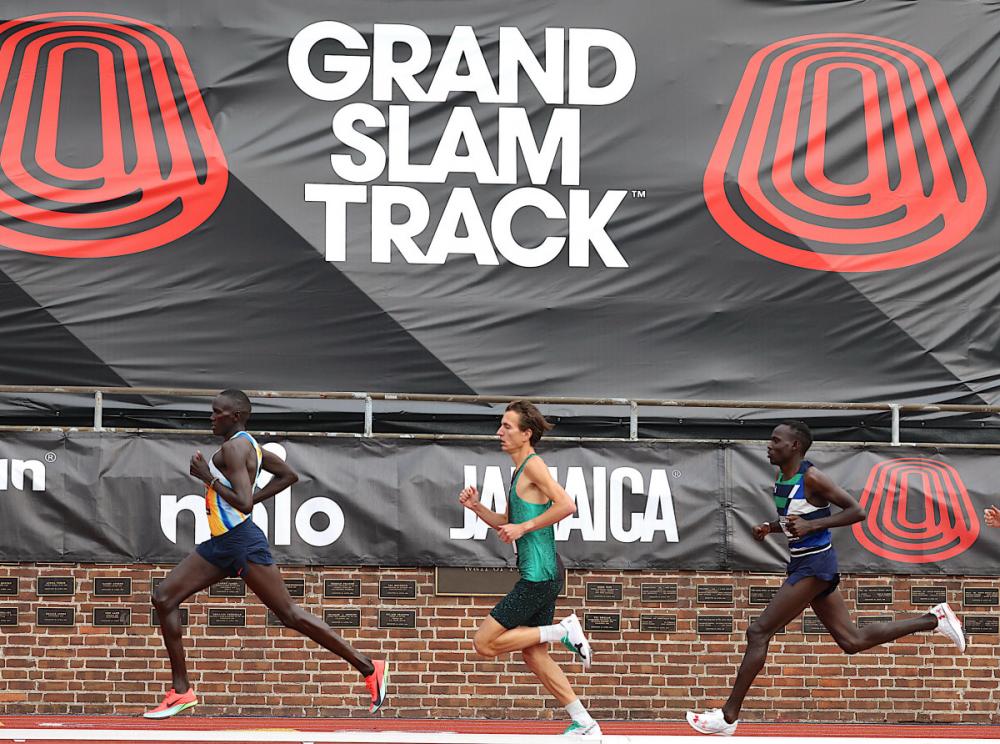Michael Johnson’s track league pauses early to focus on sustainability and scale
Michael Johnson’s ambitious athletics project — Grand Slam Track (GST) — has pulled the plug on its debut season ahead of schedule, cancelling its marquee Los Angeles event originally slated for June 28–29 at Drake Stadium.
This early closure ends what was supposed to be a four-meet inaugural series, with only three meets delivered (Kingston, Miami, and Philadelphia). The cancellation of the LA leg comes amidst reports of funding and scheduling conflicts — and has broader implications for the future of professional athletics.
What Happened?
- Venue Conflict: The LA event was called off after USA Track & Field withdrew its own meet at Drake Stadium earlier this month, citing viability issues due to GST’s scheduling.
- Venue Implications: Drake Stadium, which will host athletics for the Los Angeles 2028 Olympics, now loses a key summer test event for 2025.
- Strategic Pause: GST now aims to return in 2026, with founder Michael Johnson citing a need to “ensure long-term stability” amid global economic shifts.
A Promising Format Still in Beta Mode
GST was positioned as a modern, fan-focused reimagining of elite track & field. It aimed to:
- Create team-based, group-format storytelling
- Appeal to casual fans with entertainment-first content
- Offer clean broadcast windows through international rights deals
Yet, its Kingston debut revealed early pain points: low attendance, production glitches, and confusion over competition format. Despite sell-outs in Miami and Philly, GST’s COO Steve Gera admitted the tour needed clearer branding, signage, and a simpler fan experience.
Strategic Challenges Facing GST
At 365247 Consultancy, we see GST as a case study in launching modern sports IP. Here’s a breakdown of where the challenge lies — and where the opportunity still exists:
1. Venue Ecosystem Misalignment
Without secure multi-year venue partnerships or Olympic-aligned test events, leagues like GST risk becoming logistical orphans. LA2028’s footprint needs active integration into new sports IP.
2. Casual Fan Conversion Gap
GST’s format was innovative, but not intuitive. In saturated markets like the U.S., entertainment clarity beats elite performance. Strong narratives and personality-driven content must lead the way.
3. Commercial Patience vs. Speed to Market
GST secured impressive international broadcast deals and brand interest. But commercial models for emerging leagues require multi-year storytelling runway, not single-season expectations.
4. Economic Headwinds
As Johnson rightly noted, macroeconomic volatility is real. For new leagues, this means:
- Lean operations
- Digital-first monetization
- Long-tail sponsorship plays
Not just big-event flash.
Johnson confirmed that GST is in discussions with future host cities, with Los Angeles still on the radar for 2026. The vision — to become the world’s premier track league — remains alive.
But what GST does between now and 2026 will determine its legitimacy:
Rebrand and simplify
Anchor a few key geographies
Translate athletic excellence into emotionally sticky storytelling
Offer sponsors an authentic, progressive platform in the Olympic run-up
Launching a new sports league — especially in Olympic disciplines — is not a one-season story. At 365247 Consultancy, we help creators, rights holders, and investors:
- Design new formats that travel beyond niche fandom
- Build venue and city alliances early
- Create content pipelines that feed both hardcore and casual audiences
- Develop monetization blueprints that survive beyond ticket sales
Interested in building the next fan-first sports property. Book your introductory call here.


